Labor’s long on ‘vibes’ but woefully short on policy
A sneaking suspicion that Albo’s reliance on his early background is being used to mask the lack of substance on his political CV was confirmed this week.
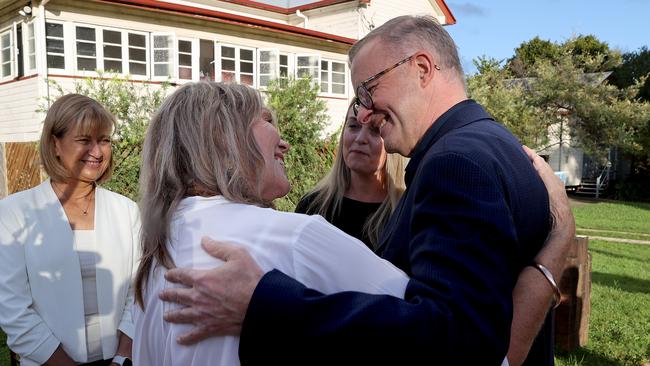
On Wednesday, Labor leader Anthony Albanese said “no one will be left behind” under a government he leads. That’s a nice set of words. But they go to the central problem with Albanese’s soft-heart campaign. It is not a sign of leadership.
The Labor leader has spent much of this election campaign talking about his upbringing too – raised by his mum, a single parent, lived in public housing, no privilege. That is another fine story. It might turn out he’s a terrific bloke. But none of that is enough to produce a fine leader.
In fact, a sneaking suspicion that Albo’s reliance on his early background is being used to mask the lack of substance on his political CV was confirmed this week by his wages blunder.
Albanese’s vibey and emotional “no one left behind” pitch to voters is fundamentally different from previous leaders who focused on opportunity. In May 2019, then opposition leader Bill Shorten delivered a teary press conference about his mum going back to university in her 50s, while raising a family, to get a law degree. At the 2007 election, an opposition leader named Kevin told us he was here to help. Mark Latham famously used the “hand up” rhetoric at the 2004 election. History records that only Rudd won the contest of ideas against a conservative government – by pretending to be conservative.
“I don’t stand before you with a bag full of irresponsible promises that could put upward pressure on inflation,” Rudd said at his November 2007 campaign launch.
Albanese is a throwback to an ill-conceived equality of outcome ideology. He also reflects what Margaret Thatcher observed decades earlier when she remarked that one of the problems defining our age is politicians who care more about feelings than they do about thoughts and ideas.
Woefully, Thatcher’s observation may apply to many voters today, meaning a large part of the electorate might be content to vote on the vibe of the thing. After all, politics is a highly professional gig, which makes it hard to believe that Albo’s daily pitch to feel the pain of voters, and to promise that no one will be left behind, hasn’t been workshopped, finessed, and tested against voting groups that Labor need to get over the line next Saturday.
Alas, no government can guarantee that no one will be left behind. Policies, even – perhaps especially – good policies, often hurt one section of the country. Take the Labor leader’s statement this week that he supports a 5.1 per cent wage rise. Again and again, Albanese has pointed to looking out for people on the lowest wage. That is a very fine ambition. But he knows that governments do not set the minimum wage. The Fair Work Commission does that.
Yet a future prime minister Albanese would push for a 5.1 per cent rise to the minimum wage to reflect the rise in inflation. Will an Albanese government push for a wage rise every time inflation jumps, and a wage cut when it dips?
Despite his latest comments to limit the wage rise to the lowest paid, the Labor leader cannot guarantee no flow on effects to millions of people on awards. If this is the nonsense that Albanese gained from his economics degree, and his stint working for Labor lefty Tom Uren, the country is in deep trouble.
After saying that a Labor government would support a 5.1 per cent wage rise in its submission to the commission, Albanese subsequently crab walked away from that explicit support. Maybe he is hoping voters aren’t paying attention to these inconvenient facts. He is relying on the vibe of the thing.
It’s the same with Albanese’s big campaign promise last weekend to address the gender pay gap. Echoing this fluffy policy, Tanya Plibersek told Insiders that Labor would insert equal pay as an object into the Fair Work Act. What on earth does this mean? Do voters care?
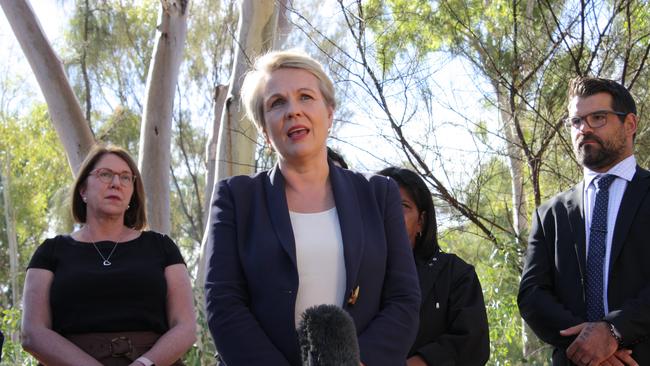
Here is another policy premised on Labor’s infatuation with ideology, not sensible policy. The so-called gender wage gap is a bogusly blunt measurement of the difference between the aggregate of all the wages earned by full-time female workers in the economy and the aggregate wages of full-time male workers. Only a Marxist social engineer would say that gap should be nil.
A modern Labor Party would champion equality of opportunity. Instead, Labor has chosen a fraudulent policy of equality of outcomes that is disrespectful to men and women. It is premised on paying a woman the same as a man even if a woman employee puts in fewer hours, is less work-focused or less skilled. It disrespects women by flat out ignoring the legitimate choices that women make – how they work, how long they work, where they work – that explain the wage differences.
It has been illegal for many decades to pay a woman less than a man for the same job because she is a woman. If employers are breaking the law, then they ought to be prosecuted. That is a sound policy.
There are only two ways to eliminate the “gender pay gap” – neither of them sound. Either ensure men and women make the same choices in all respects irrespective of choice or biology, or, if you can’t do that, you pay a woman more even where she works differently, or fewer hours, or both. Ideologues prefer the latter.
Many sensible people will agree that aged-care workers and nurses should get paid more. But to wrap that up simply as a gender pay gap issue insults voters. On that front, it insults voters too not to explain who will pay for higher wages? Will the old pay? Will taxpayers foot the bill? Albanese is relying on voters digging the vibe of the thing.
And the Labor leader is not alone. This federal election campaign has become a competition of the biggest vibe. Nothing concrete. No real conviction. Just a vibey, slogan-driven, mostly fact-free pitch by all parties and independents trying to tap into how we feel.
The teal-coloured female candidates won’t tell us who they will back in government. Just trust them with the vibe of the thing. They tell us that the community “feels” that the country needs a federal corruption body. Yet they are silent on what model works for the country. Allegra Spender won’t even tell us what she thinks corruption is. All she knows is what the community “feels”.
Spender and other teals have this much in common with Albanese: they seem to be using this election as a therapy session for voters. Except that the country doesn’t need a host of therapists in parliament, let alone at the helm. We need politicians who can make, and support, hard decisions to steer us through troubled economic times, and big security challenges.
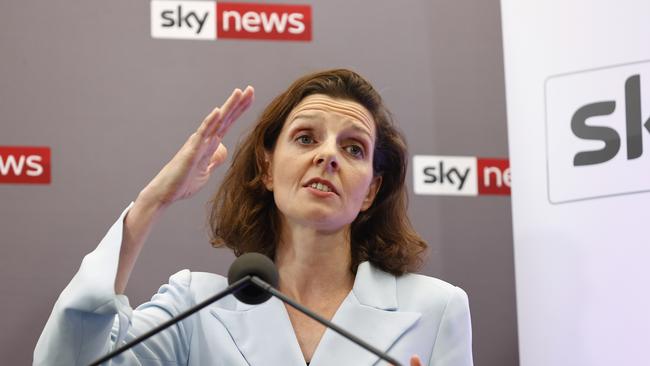
For voters looking for substance, the choice is skint. The Liberals have their own set of vibey pitches to voters. Morrison and his Liberals have spent much of this campaign spruiking the importance of protecting women in sport from trans competitors. Yes, many of us do care about fairness in sport, and deplore how inclusivity has led major sporting codes to ignore the biological science that should underpin fair policy. Yet, there is no word from the Liberals about the role that government plays on this front, apart from throwing around a slogan at election time.
The PM and the Treasurer have been selling an economic vibe too. They want us to believe that nothing they have done has played a part in this month’s interest rate rise, but then claim that their policies would put more downward pressure on the cash rate than Labor’s policies. The PM and Treasurer claim that they are better economic managers in a time of rising inflation, yet have thrown billions at us through cost-of-living payments and other election bribes to secure our votes.
It should be the ultimate insult to an informed electorate that we are being bribed by the parties using our own money with spending that can only drive-up inflationary pressures.
The deeper psychology that might be driving this polarising, vibey election is not inspiring. As one reader wrote last week: “It is all part and parcel of the shift from objectivity to shallow emotionalism of public discourse. We are a society of mobs with flaming torches and pitchforks, each seeking to burn up whichever witch is their hatred de jour.”


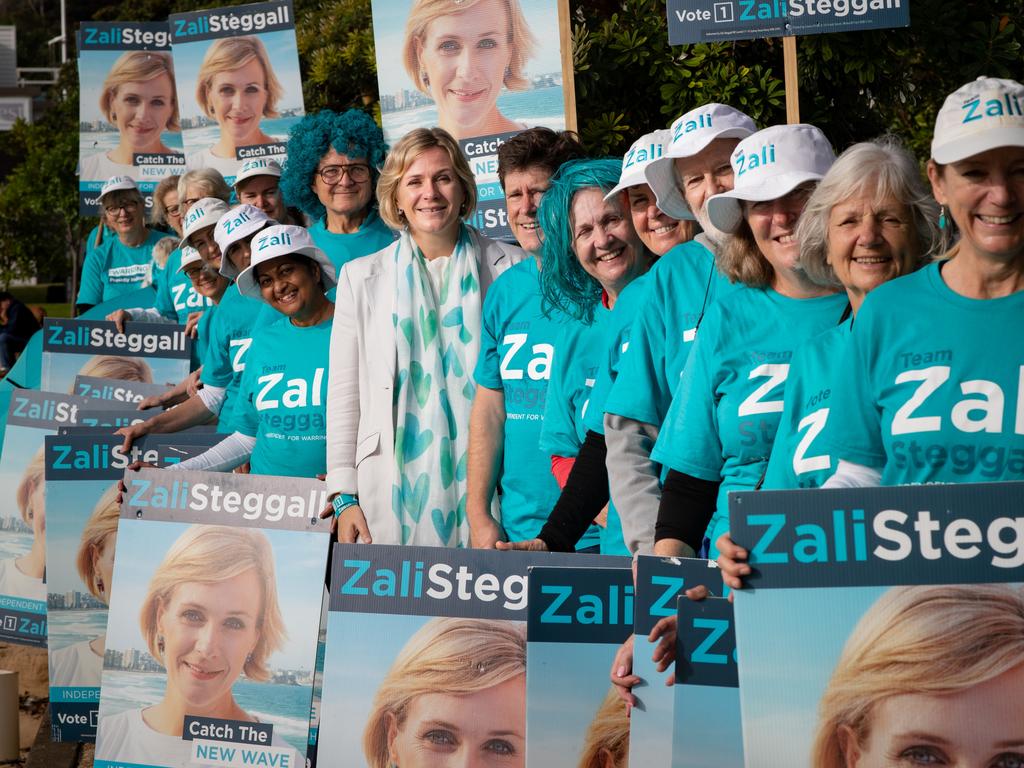
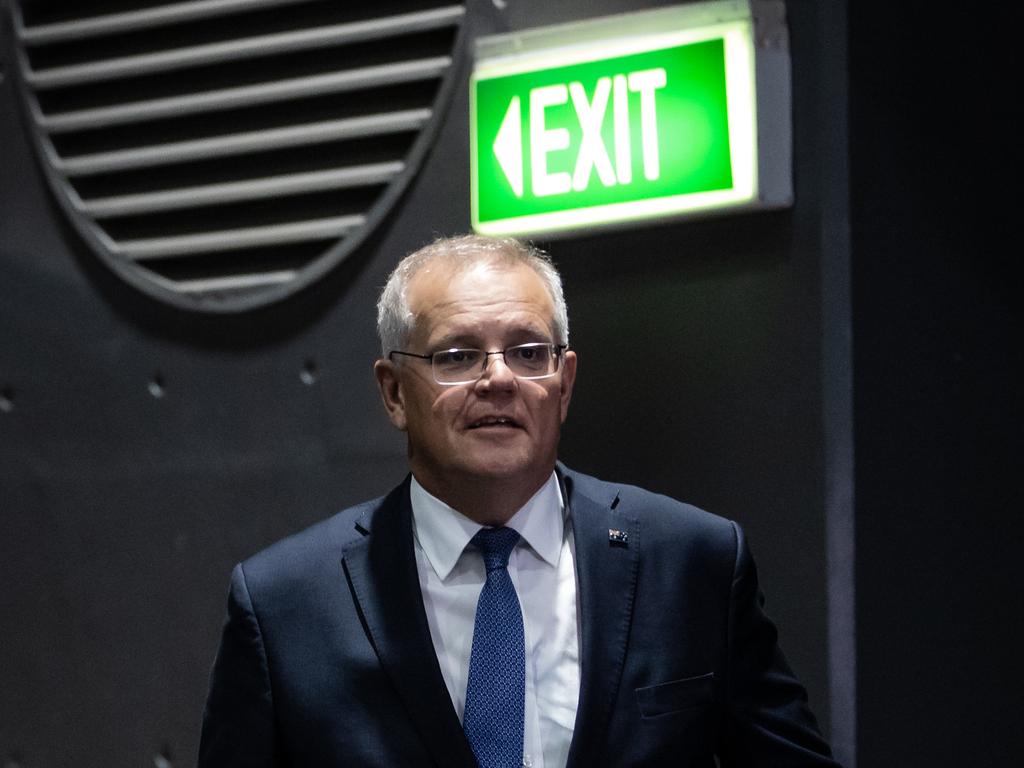
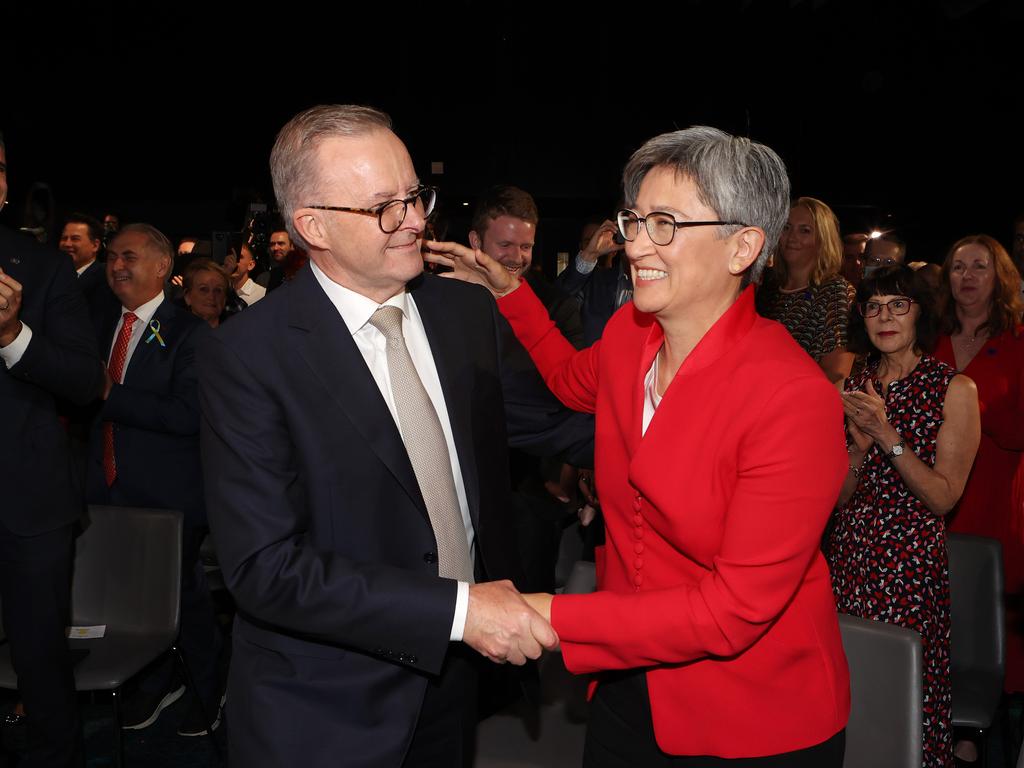


Labor is so high on vibey politics, they are slurring their words. Either that or those who claim to be our alternative government are deliberately uttering nonsense on everything from the minimum wage to the gender pay gap.